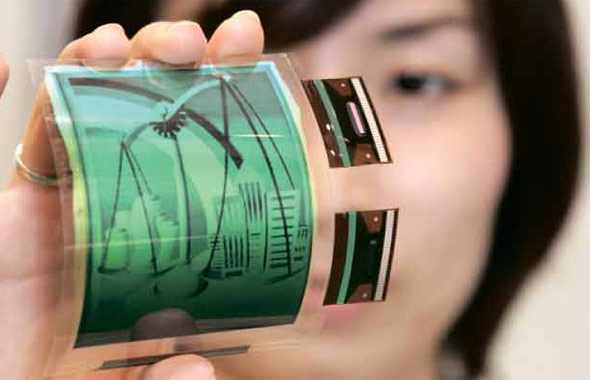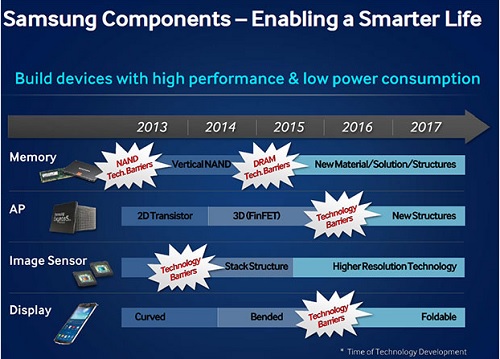Samsung to Release Phones with Foldable Screens by 2015
Sign up to receive The Snapshot, a free special dispatch from Laptop Mag, in your inbox.
You are now subscribed
Your newsletter sign-up was successful
Say goodbye to cracked smartphone displays and bulky pockets. Your future smartphone may be able to twist, bend and fold in half-- at least that’s what Samsung has in mind. The Korea-based gadget maker recently revealed that it plans to launch smartphones with bendable displays in 2014, followed by fully foldable phones in 2015.
Samsung is also ramping up the pixel count in its smartphone displays. The company has revealed plans to implement 560ppi AMOLED display panels in future smartphones come 2014. Ultra HD, or 4K, resolution is on tap for Samsung smartphones in 2015, meaning we could see smartphone displays with resolutions of 3840 x 2160.
The company unveiled its plans at Samsung Analyst Day in Korea, where it revealed its strategy and business forecasts for its future devices. The announcement comes nearly one month after Samsung revealed the world’s first curved display smartphone, the Galaxy Round. LG soon followed suit with its G Flex smartphone, which also features a curved display but within the vertical axis, rather than Samsung’s horizontally curved device.
MORE: Apple iPhone 5s vs Samsung Galaxy S4
Flexible displays aren’t a new concept for Samsung, but until now the company hadn’t mentioned when this tech would become available in phones. The Galaxy smartphone maker has been flaunting its YOUM fully flexible displays over the past couple of years at CES, showcasing exactly what the technology can do.
Although the display technology has been in place for a while, companies have struggled to make other necessary components flexible. While foldable internal parts don’t exist just yet, LG and Samsung have both been experimenting with flexible batteries-- marking a crucial step in the development of fully foldable mobile devices.
This advancement not only affects the smartphone space, but the mobile market as a whole. Companies such as Apple and Motorola hold patents for flexible displays that can fully bend around a user’s wrist, hinting that this technology could be used to create new smartwatch form factors.
Sign up to receive The Snapshot, a free special dispatch from Laptop Mag, in your inbox.
Samsung has also announced that it will join the likes of Apple and Qualcomm in designing their own core for future processors, rather than licensing processors from ARM and putting them in their signature Exynos chips. Samsung hasn’t specified a timeline for this technology just yet, but the chip will come with the company’s own 64-bit core.
It's clear that Samsung is working to improve its smartphones in every possible way-- from its processors and display quality to camera sensors. Samsung also admitted that its software could use some refinement, as chairman and CEO Kwon Oh-hyun said the company’s software is “not as good” as its hardware.



